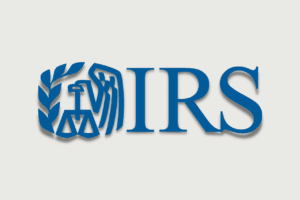News

HUD Allocates PHA and CDBG COVID-19 Funding
HUD announced the allocation of $380 million in supplemental administrative fee funding to all Public Housing Authorities (PHAs). HUD also allocated an additional $1 billion through its Community Development Block Grant.

Ginnie Mae Announces Pass-Through Assistance Program for Participants in its Multifamily MBS Program
Ginnie Mae issued a memo, which announces a new version of the existing Pass-Through Assistance Program (PTAP) for use by Multifamily Mortgage-backed Securities (MF MBS) Issuers facing a temporary liquidity shortfall directly attributable to COVID-19.

HUD Issues Final Rule on Three-Year Income Recertifications
HUD published a final rule that allows public housing authorities (PHAs) and owners to conduct full income recertifications for families with 90 percent or more of their income from fixed-income every three years instead of annually. The final rule is effective as of June 8, 2020.

ACTION Campaign Sends Letter to Congressional Leadership
The ACTION Campaign, of which NH&RA is a steering committee member, sent a letter to congressional leadership calling for our Housing Credit priorities. The letter calls for enacting a minimum four percent LIHTC rate and lowering the 50 percent test for bond financed transactions.

IRS Issues Revenue Procedure, Notice Providing Guidance for Private Activity Bonds During COVID-19-Related Economic Disruption
In Revenue Procedure 2020-21, the IRS provides temporary guidance to allow hearings held by teleconference due to the COVID-19 pandemic to meet the statutory public approval requirement for PABs. Notice 2020-25 temporarily expands the circumstances and period for which a PAB is treated as “continuing in effect” without requiring the reissuance or retirement.

HUD Updates Multifamily Q&A for COVID-19
HUD’s Office of Multifamily Housing Programs updated its Multifamily Q&A Guidance for COVID-19 on May 1. The new questions address nutrition resources for residents, calculating tenant income from the CARES Act, forbearance, evictions for criminal activity, subsidy payments for deceased tenants due to COVID-19 and more. Search “5/1/20” to search for the new questions and […]

Novogradac Estimates a Minimum Four Percent LIHTC would Finance 126,000 Homes Over Ten Years
Novogradac published updated unit financing estimates of enacting a minimum four percent LIHTC , which estimates more than 126,000 additional affordable rental homes would be created or preserved from 2020 to 2029.

JCHS Estimates $274 Million – $7.5 Billion Needed in Rental Assistance
In this blog post, Whitney Airgood-Obrycki with the Joint Center for Housing Studies of Harvard University estimates assistance for renters with at-risk wages could range from $274 million up to a staggering $7.5 billion.

Terner Center: Estimating COVID-19’s Near-Term Impact On Renters
According to Terner Center estimates, nearly 16.5 million renter households have at least one worker in an industry likely to be immediately affected by efforts to flatten the curve in the COVID-19 pandemic.

HUD Corrects BBRA for PRAC Properties Memo
HUD reissued the Update on Budget Based Rent Adjustments (BBRA) for Properties Assisted under Project Rental Assistance Contracts (PRACs) memo with a correction to paragraph five. The original correspondence dated March 12, 2020, referenced monthly per-unit deposit levels rather than annual per-unit deposit levels, as was intended.

Senate to Return Next Week; House Remains in Recess
Senate Majority Leader Mitch McConnell (R-KY) announced that the Senate will be in session on May 4. The House announced it would return from recess only to reverse course after conflicting advice from the Capitol physician and an outcry from members. In the next Coronavirus relief package, Leader McConnell will push for liability protections for […]

HUD COVID-19 Guidance for Residents
HUD created a resource for residents and families living in multifamily properties, which addresses steps residents can take in case of lost income during COVID-19, provides local contact information and explains the eviction moratorium in the CARES Act.